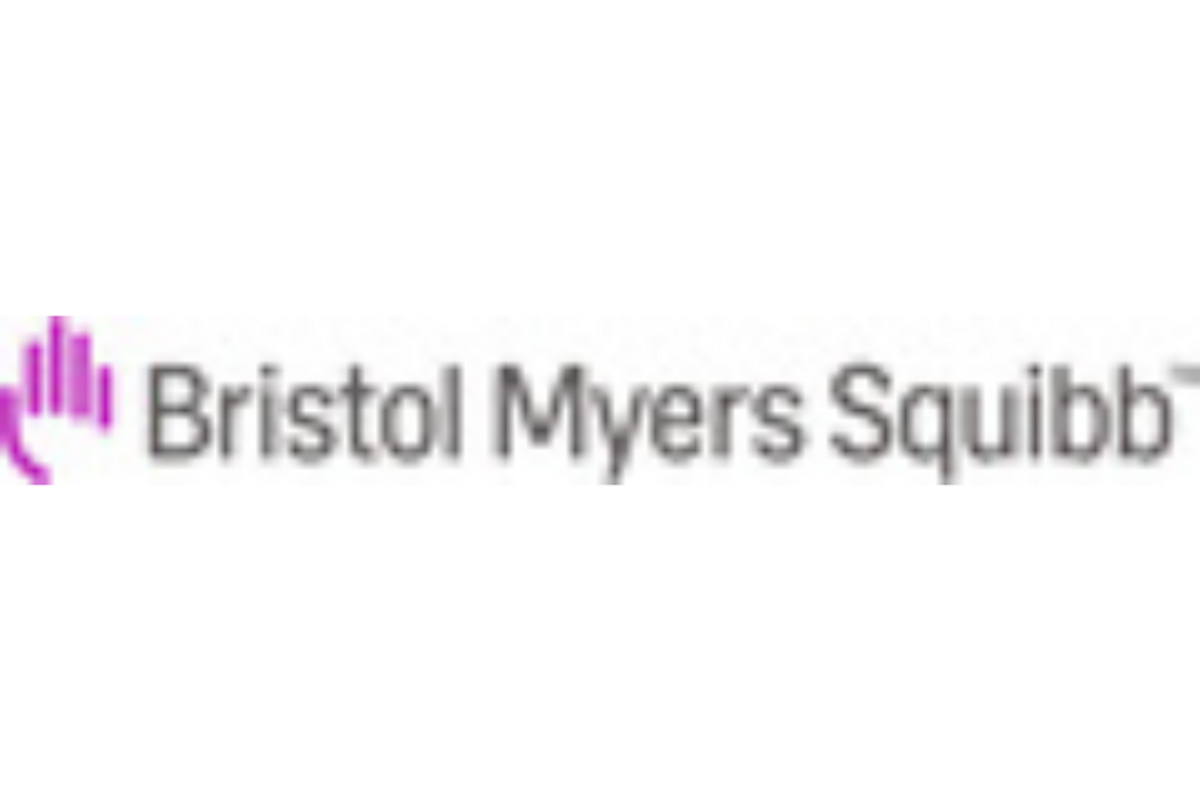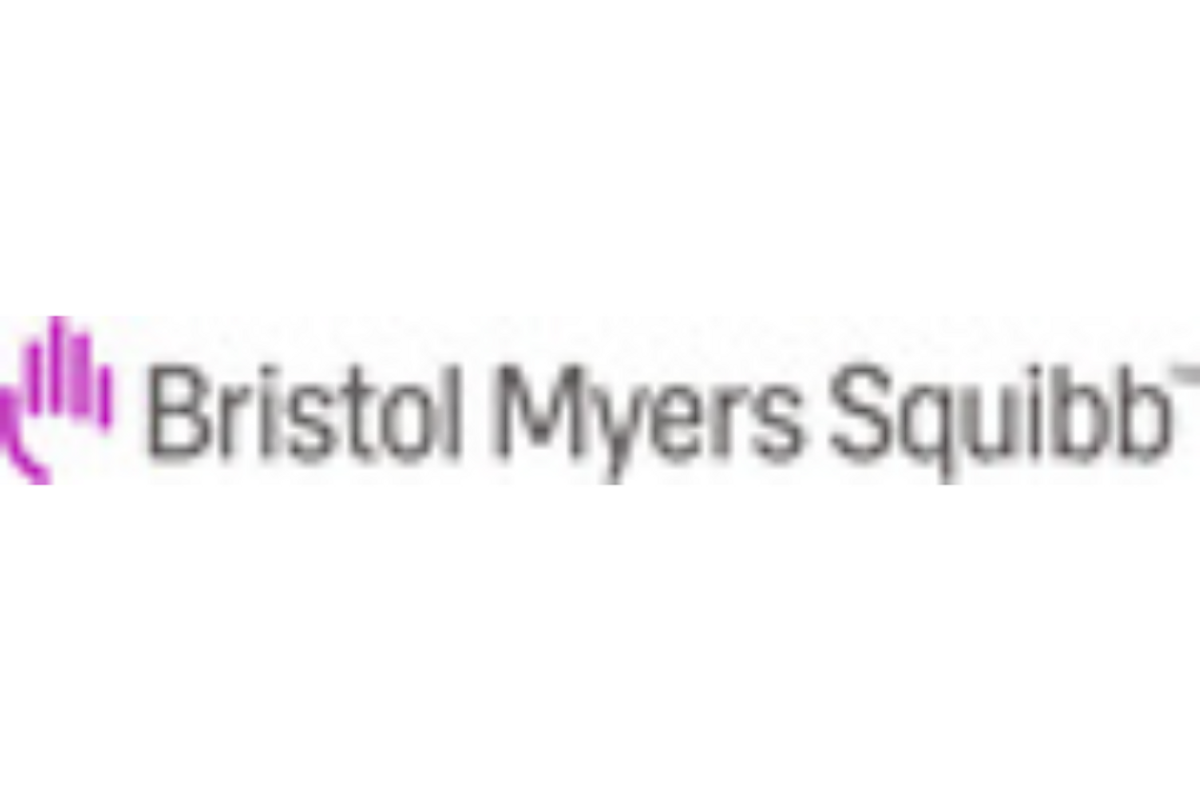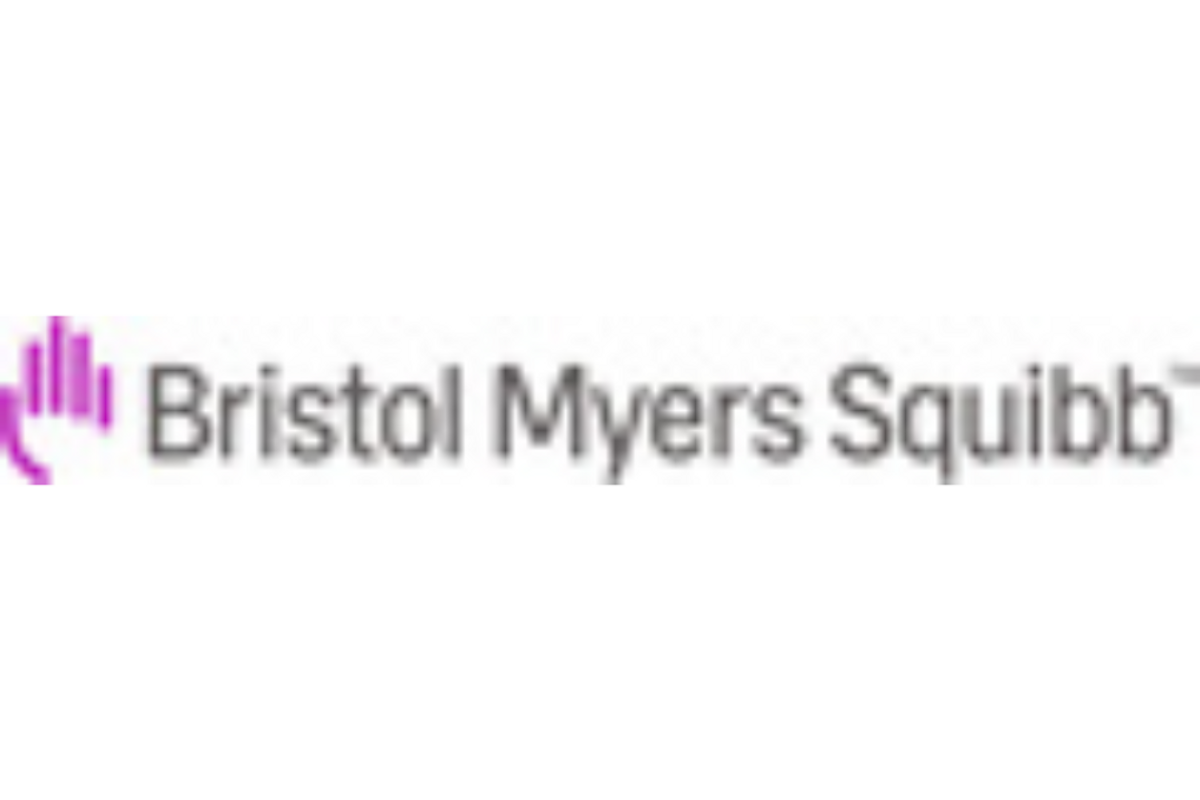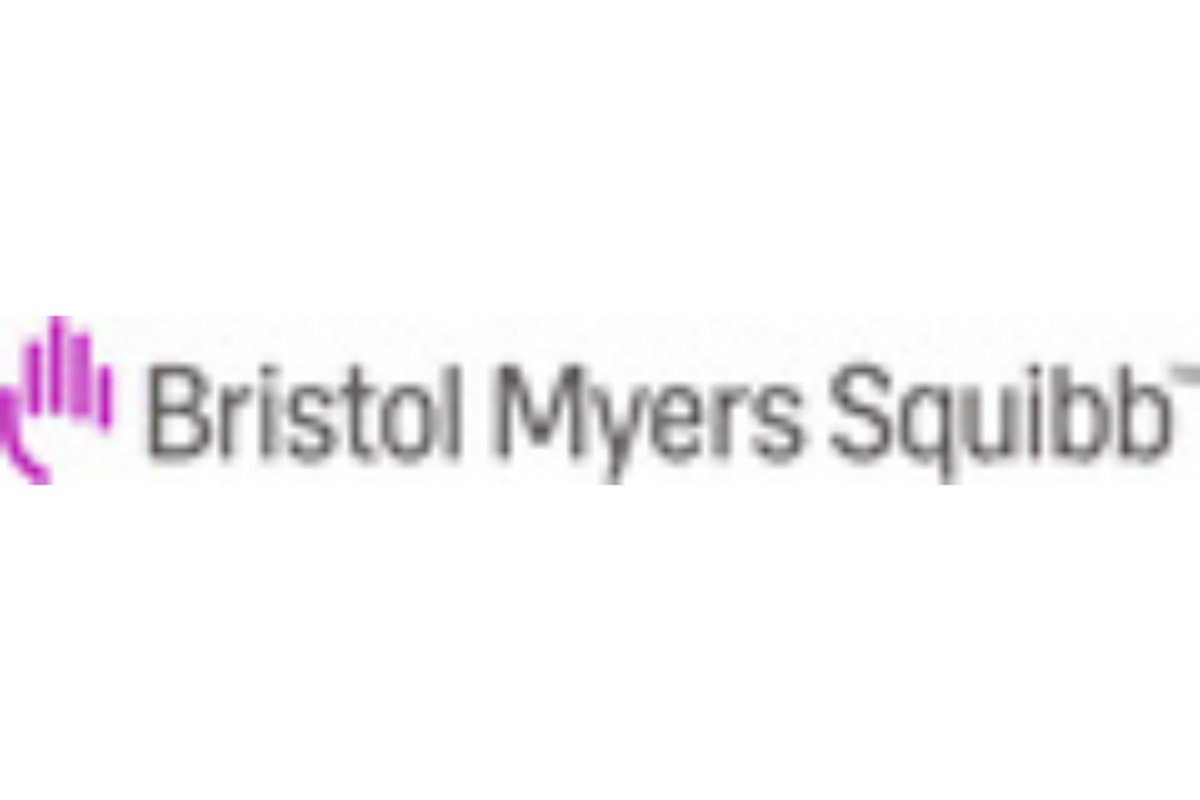Sotyktu demonstrated superior efficacy in improving skin clearance over placebo and twice-daily Otezla ® (apremilast), with a well-tolerated safety profile, in the pivotal Phase 3 POETYK PSO clinical trials
Sotyktu is the first oral therapy with a new mechanism of action approved in nearly 10 years for moderate-to-severe plaque psoriasis
Sotyktu is a first-in-class, oral, selective, allosteric tyrosine kinase 2 (TYK2) inhibitor and the only TYK2 inhibitor approved for the treatment of any disease in the European Union
Bristol Myers Squibb (NYSE:BMY) today announced that the European Commission has approved Sotyktu (deucravacitinib), a first-in-class, selective tyrosine kinase 2 (TYK2) inhibitor, for the treatment of adults with moderate-to-severe plaque psoriasis who are candidates for systemic therapy, representing a new way of treating this chronic immune-mediated disease. The approval was based on results from the Phase 3 POETYK PSO-1 and POETYK PSO-2 clinical trials, which demonstrated superior efficacy of once-daily Sotyktu compared to placebo and twice-daily Otezla ® (apremilast) at both 16 and 24 weeks, with responses maintained through 52 weeks. Additional data from the POETYK PSO long-term extension trial (LTE) also supported approval. The POETYK study program demonstrated a consistent safety profile in patients through three years of continuous treatment.
"Today's approval is a landmark achievement as patients across Europe with moderate-to-severe plaque psoriasis will now have the opportunity to be treated with Sotyktu , the first once-daily oral option to provide significant symptom relief," said Samit Hirawat , MD, chief medical officer, Bristol Myers Squibb. "Discovered in our own labs, Sotyktu has a unique mechanism of action and a well-demonstrated safety, efficacy and tolerability profile, representing a potential new oral standard of care, and demonstrating our ability to develop breakthrough, first-in-class treatments with the potential to transform people's lives."
Psoriasis is a widely prevalent, chronic, systemic immune-mediated disease that impacts approximately 14 million people in Europe. Up to 90% of patients with psoriasis have psoriasis vulgaris, or plaque psoriasis, which is characterized by distinct round or oval plaques typically covered by silvery-white scales. Nearly one-quarter of people with psoriasis have cases that are considered moderate to severe. Current therapies include topicals, orals and biologics. Patients may prefer oral therapies, and many patients and physicians are looking for additional efficacious and tolerable options.
"The approval of Sotyktu is groundbreaking for the psoriasis community because we now have a tolerable, highly efficacious, once-daily oral treatment option that does not require lab monitoring," said Diamant Thaçi, MD, PhD, director and full professor, Institute and Comprehensive Center for Inflammation Medicine, University Lübeck, Germany. "The Phase 3 POETYK-PSO clinical trials showed that Sotyktu demonstrated significant, durable efficacy across multiple key endpoints, including skin clearance and symptom burden. The results are particularly meaningful for dermatologists and patients who have been waiting for a more effective and convenient oral therapy to help manage this serious, chronic, immune-mediated disease."
The most commonly reported adverse reaction was upper respiratory infections (18.9%), most frequently nasopharyngitis. The incidence of serious infection in the Sotyktu group was 0.6% compared to 0.5% in the placebo group. The majority of infections were non-serious and mild to moderate in severity and did not lead to the discontinuation of Sotyktu. Infections occurred in 29.1% of patients in the Sotyktu group compared to 21.5% in the placebo group during the first 16 weeks. The rate of infections and serious infections in the Sotyktu group did not increase through Week 52. The longer-term safety profile of Sotyktu was similar and consistent with previous experience.
"Psoriasis can greatly impact one's life physically, emotionally and mentally, with symptoms, such as visible plaques and itching, and feelings of self-stigma and isolation," said Frida Dunger Johnsson, Executive Director, IFPA (International Federation of Psoriasis Associations). "There has been an acute need for treatment options offering higher levels of efficacy for people living with moderate-to-severe psoriasis, many of whom remain untreated, undertreated or dissatisfied with current medicines. We are thrilled that we now have the first once-daily oral therapy to help people with plaque psoriasis and physicians as they work together toward the goal of relieving symptoms and improving their disease."
Bristol Myers Squibb thanks the patients and investigators involved in the POETYK PSO clinical trial program.
About the POETYK PSO Clinical Trial Program
P r O gram to E valuate the efficacy and safety of Sotyktu (deucravacitinib), a selective TYK 2 inhibitor (POETYK) PSO-1 (NCT03624127) and POETYK PSO-2 (NCT03611751) were global Phase 3 studies designed to evaluate the safety and efficacy of Sotyktu compared to placebo and Otezla ® (apremilast) in patients with moderate-to-severe plaque psoriasis. Both POETYK PSO-1, which enrolled 666 patients, and POETYK PSO-2, which enrolled 1,020 patients, were multicenter, randomized, double-blind trials that evaluated Sotyktu (6 mg once daily) compared to placebo and Otezla (30 mg twice daily). POETYK PSO-2 included a randomized withdrawal and retreatment period after Week 24.
The co-primary endpoints of both POETYK PSO-1 and POETYK PSO-2 were the percentage of patients who achieved Psoriasis Area and Severity Index (PASI) 75 response and those who achieved static Physician's Global Assessment (sPGA) score of 0 or 1 (clear/almost clear) at Week 16 versus placebo. Key secondary endpoints of the trials included the percentage of patients who achieved PASI 75 and sPGA 0/1 compared to Otezla at Week 16 and other measures evaluating Sotyktu versus placebo and Otezla.
Across both clinical trials and timepoints, significantly more Sotyktu -treated patients achieved a sPGA score of 0/1, PASI 75 response and PASI 90 response. Responses persisted through Week 52, as 82% (187/228) of patients who achieved PASI 75 with Sotyktu at Week 24 maintained their response at Week 52 in POETYK PSO-1. In POETYK PSO-2, 80% (119/148) of patients who continued Sotyktu maintained PASI 75 response compared to 31% (47/150) of patients who were withdrawn from Sotyktu .
| Efficacy | POETYK PSO-1 | POETYK PSO-2 | ||||
| Sotyktu | Otezla | Placebo | Sotyktu | Otezla | Placebo | |
| sPGA 0/1 | ||||||
| Week 16 | 178 (53.6) | 54 (32.1) c | 12 (7.2) a,c | 253 (49.5) | 86 (33.9) c | 22 (8.6) a,c |
| Week 24 | 195 (58.7) | 52 (31.0) c | - | 251 (49.8) b | 75 (29.5) c | - |
| PASI 75 | ||||||
| Week 16 | 194 (58.4) | 59 (35.1) c | 21 (12.7) a,c | 271 (53.0) | 101 (39.8) d | 24 (9.4) a,c |
| Week 24 | 230 (69.3) | 64 (38.1) c | - | 296 (58.7) b | 96 (37.8) c | - |
| PASI 90 | ||||||
| Week 16 | 118 (35.5) | 33 (19.6) d | 7 (4.2) c | 138 (27.0) | 46 (18.1) e | 7 (2.7) c |
| Week 24 | 140 (42.2) | 37 (22.0) c | - | 164 (32.5) b | 50 (19.7) c | - |
| Non-responder imputation (NRI) was used; patients who discontinued treatment or the study prior to the endpoint or had missing data were counted as non-responders. |
| a Co-primary endpoint comparing Sotyktu and placebo |
| b n=504 accounting for missed assessments due to COVID-19 pandemic |
| c p ≤0.0001 for comparison between Sotyktu and placebo or Sotyktu and Otezla |
| d p Sotyktu and Otezla |
| e p Sotyktu and Otezla |
Following the 52-week POETYK PSO-1 and POETYK PSO-2 trials, patients could enroll in the ongoing POETYK PSO long-term extension (LTE) trial (NCT04036435) and receive open-label Sotyktu 6 mg once-daily. In the LTE trial, 1,221 patients were enrolled and received at least one dose of Sotyktu . Efficacy was analyzed utilizing treatment failure rules (TFR) method of imputation, along with sensitivity analyses using modified non-responder imputation and as-observed analysis, which have been used in similar analyses with other agents.
In addition to POETYK PSO-1, POETYK PSO-2 and POETYK PSO-LTE, Bristol Myers Squibb has evaluated Sotyktu in two other Phase 3 studies in psoriasis: POETYK PSO-3 (NCT04167462) and POETYK PSO-4 (NCT03924427).
About Psoriasis
Psoriasis is a widely prevalent, chronic, systemic immune-mediated disease that substantially impairs patients' physical health, quality of life and work productivity. Psoriasis is a serious global problem, with at least 100 million people worldwide impacted by some form of the disease, including around 14 million people in Europe and approximately 7.5 million people in the United States. Nearly one-quarter of people with psoriasis have cases that are considered moderate-to-severe. Up to 90 percent of patients with psoriasis have psoriasis vulgaris, or plaque psoriasis, which is characterized by distinct round or oval plaques typically covered by silvery-white scales. Despite the availability of effective systemic therapy, many patients with moderate-to-severe psoriasis remain undertreated or even untreated and are dissatisfied with current treatments. People with psoriasis report an impact on their emotional well-being, straining both personal and professional relationships and causing a reduced quality of life. Psoriasis is associated with multiple comorbidities that may impact patients' well-being, including psoriatic arthritis, cardiovascular disease, metabolic syndrome, obesity, diabetes, inflammatory bowel disease and depression.
About Sotyktu (deucravacitinib)
Sotyktu (deucravacitinib) is an oral, selective, allosteric tyrosine kinase 2 (TYK2) inhibitor with a unique mechanism of action, representing a new class of small molecules. It is the first selective TYK2 inhibitor in clinical studies across multiple immune-mediated diseases. Bristol Myers Squibb scientists designed Sotyktu to selectively target TYK2, thereby inhibiting signaling of interleukin (IL)-23, IL-12 and Type 1 interferons (IFN), key cytokines involved in the pathogenesis of multiple immune-mediated diseases. Sotyktu achieves a high degree of selectivity by binding to the regulatory domain of TYK2, resulting in allosteric inhibition of TYK2 and its downstream functions. Sotyktu selectively inhibits TYK2 at physiologically relevant concentrations. At therapeutic doses, Sotyktu does not inhibit JAK1, JAK2 or JAK3.
Bristol Myers Squibb: Pioneering Paths Forward in Immunology to Transform Patients' Lives
Bristol Myers Squibb is inspired by a single vision – transforming patients' lives through science. For people living with immune-mediated diseases, the debilitating reality of enduring chronic symptoms and disease progression can take a toll on their physical, emotional and social well-being, making simple tasks and daily life a challenge. Driven by our deep understanding of the immune system that spans over 20 years of experience, and our passion to help patients, the company continues to pursue pathbreaking science with the goal of delivering meaningful solutions that address unmet needs in rheumatology, gastroenterology, dermatology and neurology. We follow the science, aiming to tailor therapies to individual needs, improve outcomes and expand treatment options by working to identify mechanisms with the potential to achieve long-term remission – and perhaps even cures – in the future. By building partnerships with researchers, patients and caregivers to deliver innovative treatments, Bristol Myers Squibb strives to elevate patient care to new standards and deliver what matters most – the promise of living a better life.
Full European Summary of Product Characteristics for Sotyktu is available from the EMA website at www.ema.europa.eu
SOTYKTU U.S. INDICATION
SOTYKTU™ (deucravacitinib) is indicated for the treatment of moderate-to-severe plaque psoriasis in adults who are candidates for systemic therapy or phototherapy.
Limitations of Use:
SOTYKTU is not recommended for use in combination with other potent immunosuppressants.
IMPORTANT SAFETY INFORMATION
CONTRAINDICATIONS
SOTYKTU is contraindicated in patients with a history of hypersensitivity reaction to deucravacitinib or to any of the excipients in SOTYKTU.
WARNINGS AND PRECAUTIONS
Hypersensitivity: Hypersensitivity reactions such as angioedema have been reported. If a clinically significant hypersensitivity reaction occurs, institute appropriate therapy and discontinue SOTYKTU.
Infections: SOTYKTU may increase the risk of infections. Serious infections have been reported in patients with psoriasis who received SOTYKTU. The most common serious infections reported with SOTYKTU included pneumonia and COVID-19. Avoid use of SOTYKTU in patients with an active or serious infection. Consider the risks and benefits of treatment prior to initiating SOTYKTU in patients:
- with chronic or recurrent infection
- who have been exposed to tuberculosis
- with a history of a serious or an opportunistic infection
- with underlying conditions that may predispose them to infection.
Closely monitor patients for the development of signs and symptoms of infection during and after treatment. A patient who develops a new infection during treatment should undergo prompt and complete diagnostic testing, have appropriate antimicrobial therapy initiated and be closely monitored. Interrupt SOTYKTU if a patient develops a serious infection. Do not resume SOTYKTU until the infection resolves or is adequately treated.
Viral Reactivation
Herpes virus reactivation (e.g., herpes zoster, herpes simplex) was reported in clinical trials with SOTYKTU. Through Week 16, herpes simplex infections were reported in 17 patients (6.8 per 100 patient-years) treated with SOTYKTU, and 1 patient (0.8 per 100 patient-years) treated with placebo. Multidermatomal herpes zoster was reported in an immunocompetent patient. During PSO-1, PSO-2, and the open-label extension trial, the majority of patients who reported events of herpes zoster while receiving SOTYKTU were under 50 years of age. The impact of SOTYKTU on chronic viral hepatitis reactivation is unknown. Consider viral hepatitis screening and monitoring for reactivation in accordance with clinical guidelines before starting and during therapy with SOTYKTU. If signs of reactivation occur, consult a hepatitis specialist. SOTYKTU is not recommended for use in patients with active hepatitis B or hepatitis C.
Tuberculosis (TB): In clinical trials, of 4 patients with latent TB who were treated with SOTYKTU and received appropriate TB prophylaxis, no patients developed active TB (during the mean follow-up of 34 weeks). One patient, who did not have latent TB, developed active TB after receiving 54 weeks of SOTYKTU. Evaluate patients for latent and active TB infection prior to initiating treatment with SOTYKTU. Do not administer SOTYKTU to patients with active TB. Initiate treatment of latent TB prior to administering SOTYKTU. Consider anti-TB therapy prior to initiation of SOTYKTU in patients with a past history of latent or active TB in whom an adequate course of treatment cannot be confirmed. Monitor patients for signs and symptoms of active TB during treatment.
Malignancy including Lymphomas: Malignancies, including lymphomas, were observed in clinical trials with SOTYKTU. Consider the benefits and risks for the individual patient prior to initiating or continuing therapy with SOTYKTU, particularly in patients with a known malignancy (other than a successfully treated non-melanoma skin cancer) and patients who develop a malignancy when on treatment with SOTYKTU.
Rhabdomyolysis and Elevated CPK: Treatment with SOTYKTU was associated with an increased incidence of asymptomatic creatine phosphokinase (CPK) elevation and rhabdomyolysis compared to placebo.
Discontinue SOTYKTU if markedly elevated CPK levels occur or myopathy is diagnosed or suspected. Instruct patients to promptly report unexplained muscle pain, tenderness or weakness, particularly if accompanied by malaise or fever.
Laboratory Abnormalities: Treatment with SOTYKTU was associated with increases in triglyceride levels. Periodically evaluate serum triglycerides according to clinical guidelines during treatment. SOTYKTU treatment was associated with an increase in the incidence of liver enzyme elevation compared to placebo. Evaluate liver enzymes at baseline and thereafter in patients with known or suspected liver disease according to routine management. If treatment-related increases in liver enzymes occur and drug-induced liver injury is suspected, interrupt SOTYKTU until a diagnosis of liver injury is excluded.
Immunizations: Prior to initiating therapy with SOTYKTU, consider completion of all age-appropriate immunizations according to current immunization guidelines including prophylactic herpes zoster vaccination. Avoid use of live vaccines in patients treated with SOTYKTU. The response to live or non-live vaccines has not been evaluated.
Potential Risks Related to JAK Inhibition: It is not known whether tyrosine kinase 2 (TYK2) inhibition may be associated with the observed or potential adverse reactions of Janus Kinase (JAK) inhibition. In a large, randomized, postmarketing safety trial of a JAK inhibitor in rheumatoid arthritis (RA), patients 50 years of age and older with at least one cardiovascular risk factor, higher rates of all-cause mortality, including sudden cardiovascular death, major adverse cardiovascular events, overall thrombosis, deep venous thrombosis, pulmonary embolism, and malignancies (excluding non-melanoma skin cancer) were observed in patients treated with the JAK inhibitor compared to those treated with TNF blockers. SOTYKTU is not approved for use in RA.
ADVERSE REACTIONS
Most common adverse reactions (≥1% of patients on SOTYKTU and more frequently than with placebo) include upper respiratory infections, blood creatine phosphokinase increased, herpes simplex, mouth ulcers, folliculitis and acne.
SPECIFIC POPULATIONS
Pregnancy: Available data from case reports on SOTYKTU use during pregnancy are insufficient to evaluate a drug-associated risk of major birth defects, miscarriage, or adverse maternal or fetal outcomes. Report pregnancies to the Bristol-Myers Squibb Company's Adverse Event reporting line at 1-800-721-5072.
Lactation: There are no data on the presence of SOTYKTU in human milk, the effects on the breastfed infant, or the effects on milk production. SOTYKTU is present in rat milk. When a drug is present in animal milk, it is likely that the drug will be present in human milk. The developmental and health benefits of breastfeeding should be considered along with the mother's clinical need for SOTYKTU and any potential adverse effects on the breastfed infant from SOTYKTU or from the underlying maternal condition.
Hepatic Impairment: SOTYKTU is not recommended for use in patients with severe hepatic impairment.
SOTYKTU is available in 6 mg tablets.
Please see U.S. Full Prescribing Information , including Medication Guide , for SOTYKTU.
About Bristol Myers Squibb
Bristol Myers Squibb is a global biopharmaceutical company whose mission is to discover, develop and deliver innovative medicines that help patients prevail over serious diseases. For more information about Bristol Myers Squibb, visit us at BMS.com or follow on LinkedIn , Twitter , YouTube , Facebook and Instagram .
Otezla ® (apremilast) is a registered trademark of Amgen Inc.
Cautionary Statement Regarding Forward-Looking Statements
This press release contains "forward-looking statements" within the meaning of the Private Securities Litigation Reform Act of 1995 regarding, among other things, the research, development and commercialization of pharmaceutical products. All statements that are not statements of historical facts are, or may be deemed to be, forward-looking statements. Such forward-looking statements are based on current expectations and projections about our future financial results, goals, plans and objectives and involve inherent risks, assumptions and uncertainties, including internal or external factors that could delay, divert or change any of them in the next several years, that are difficult to predict, may be beyond our control and could cause our future financial results, goals, plans and objectives to differ materially from those expressed in, or implied by, the statements. These risks, assumptions, uncertainties and other factors include, among others, that the outcome of pricing and reimbursement negotiations in individual countries in Europe may delay or limit the commercial potential of Sotyktu (deucravacitinib) for the indication described in this release, that any marketing approvals may have significant limitations on their use, that continued approval of such product candidate for such indication described in this release may be contingent upon verification and description of clinical benefit in confirmatory trials, and whether such product candidate for such indication described in this release will be commercially successful. No forward-looking statement can be guaranteed. Forward-looking statements in this press release should be evaluated together with the many risks and uncertainties that affect Bristol Myers Squibb's business and market, particularly those identified in the cautionary statement and risk factors discussion in Bristol Myers Squibb's Annual Report on Form 10-K for the year ended December 31, 2022, as updated by our subsequent Quarterly Reports on Form 10-Q, Current Reports on Form 8-K and other filings with the Securities and Exchange Commission. The forward-looking statements included in this document are made only as of the date of this document and except as otherwise required by applicable law, Bristol Myers Squibb undertakes no obligation to publicly update or revise any forward-looking statement, whether as a result of new information, future events, changed circumstances or otherwise.
corporatefinancial-news
View source version on businesswire.com: https://www.businesswire.com/news/home/20230317005267/en/
Bristol Myers Squibb
Media Inquiries:
media@bms.com
Investors:
investor.relations@bms.com



